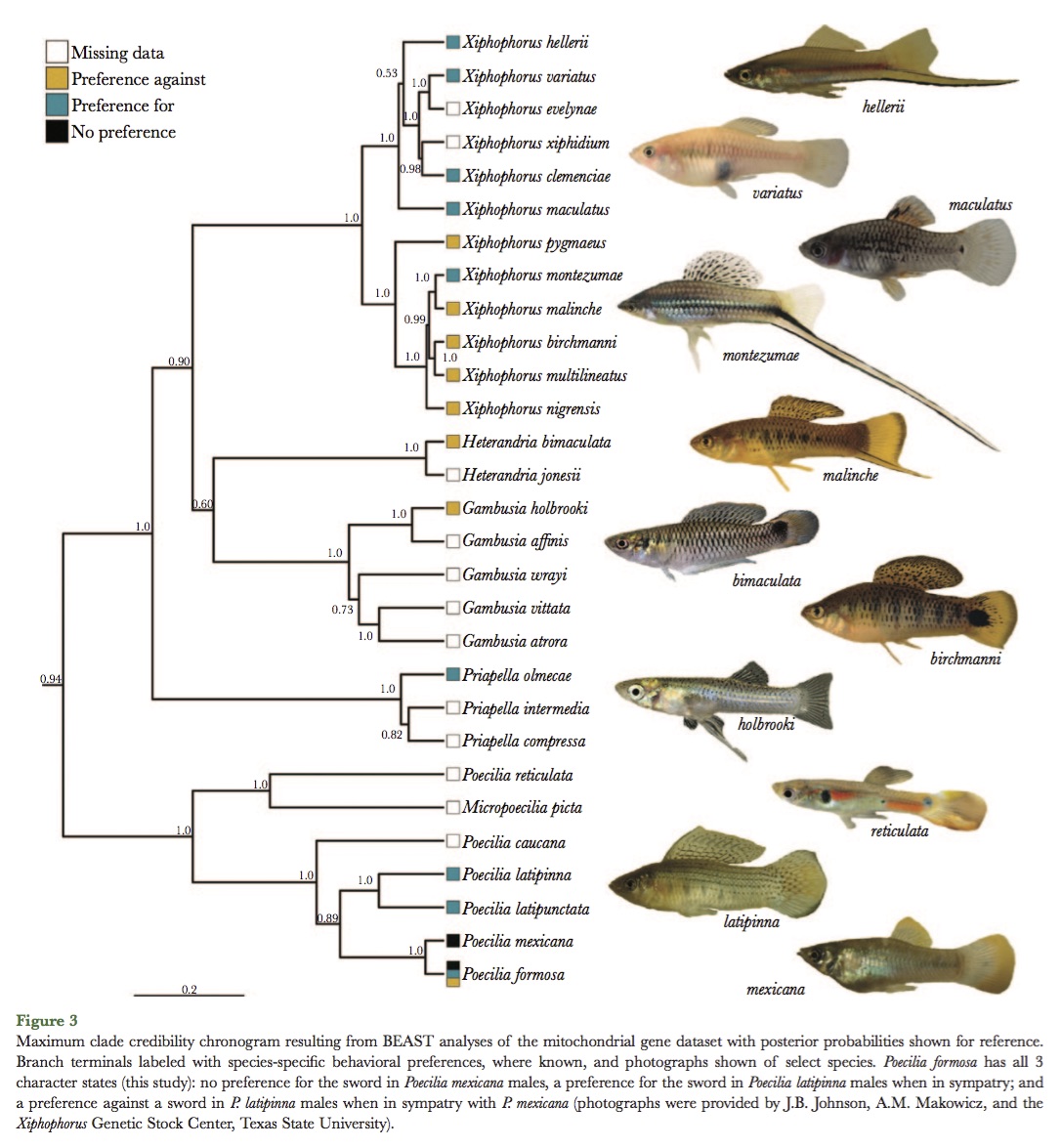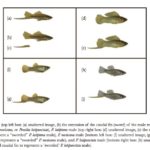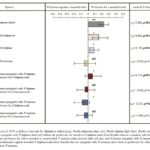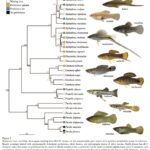Reproductive Behavioral Ecology of the Platyfish

The family of live-bearing fish, Poeciliidae, includes a wide variety of colors and body shapes, one interesting variation in shape is the elongated tail found on the males of a few species. The purpose of these extended tails, or swordtails, has long been debated by biologists. Scientists in the biology department at the University of Oklahoma decided to test a hypothesis that the flashy tails were a result of pre-existing bias of the female platyfish, or mollies (genus Poecilia). These female biases are preferences towards a physical attribute that emerged before the actual evolution of that attribute. This research delved into mating preferences of the female platyfish in order to determine whether males with swordtails had evolved this appearance in order to attract a mate. While some species’ males within the genus possessed this trait, others did not. In order to take a glimpse into how this unique trait evolved, an experiment was performed to see how different females of each species reacted to males of their own species both with and without a swordtail. Five species were tested for this bias and the results were mixed. After analyzing the behavior of the females it was found that the species Xiphophorus hellerii, P. latipinna, and P. latipunctata all preferred males with a sword, P. mexicana showed a preference for males without a sword. The most unpredicted results were those of the species P. formosa; P. formosa is a hybrid of P. mexicana and P. latipinna, and the bias of the female was largely based on that of her surrounding population. If the P. formosa was raised in a tank with P. latipinna then she preferred a male P. latipinna with a sword. If she was raised with a majority of P. mexicana then she would prefer a P. mexicana male without a sword. This study not only reinforces the part that phylogeny plays in behavioral ecology, but also raises questions about the role environment and evolutionary history plays in signal biases.
Makowicz, A.M., J.C. Tanner, E. Dumas, C.D. Siler, and I. Schlupp. 2015. Pre-existing biases for swords in mollies (Poecilia). Behavioral Ecology. doi:10.1093/beheco/arv130 pdf
- Figure 1
- Figure 2
- Figure 3



